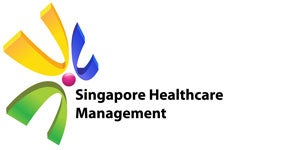SingHealth Academy will NEVER ask you to transfer money over a call. If in doubt, call the 24/7 ScamShield helpline at 1799, or visit the ScamShield website at www.scamshield.gov.sg.
SingHealth Academy will NEVER ask you to transfer money over a call. If in doubt, call the 24/7 ScamShield helpline at 1799, or visit the ScamShield website at www.scamshield.gov.sg.
SHSCMC2017 AdeelAhmed

Mr Adeel Ahmed is Head of Operations – Supply Chain & Procurement at Alfred Health in Melbourne, Australia; one of Australia’s major acute hospitals and a world leader in Emergency and Trauma medicine. Mr Ahmed qualifies as an Electronics Engineer with a Masters Qualification in Telecommunications Engineering and also holds a Master’s Degree in Business Administration (MBA). He is passionate about the value that procurement generates within a business and subsequently completed an Advanced Diploma Qualification through the Chartered Institute of Procurement and Supply (CIPS) UK.
For the last 15 years, Mr Ahmed has operated in the Supply Chain arena, gaining experience in a broad range of industries including Retail, 3PL, FMCG, Automotive and Healthcare. Prior to Alfred Health, his previous position at Toyota Boshoku Australia gave him exposure to world class systems based on the famous Toyota Production Systems (TPS).
A major procurement reform project at Alfred Health has been Mr Ahmed’s main focus for the past two years, where he has assisted Alfred Health on its journey in transitioning from a tactical procurement model to a strategic one. This allows Alfred Health to maximize real value; going directly back into patient care. "Patients are the reason we are here." – Alfred Health.
Presentation Synopsis
Procurement transformation project at Alfred Health (Category Management)
1. Main drivers for change
2. Understanding the organizational spend
3. Business case preparation for transformation
4. Procurement strategies for various categories
5. Building procurement capability
6. Getting stakeholders on board
7. What is Category Management and how does it drive value
8. Value Matrix
9. Challenges and how they were addressed
Presentation Synopsis
Building a high performing team using Toyota Production Systems (TPS)
1. Toyota Production Systems (TPS) and some of the tools used.
2. How TPS is relevant in Healthcare.
3. Introduction to visual management and its impact
4. Change is Leadership style affecting team performance
5. Challenges and how they were addressed
Prof Alex Sia is Chief Executive Officer (CEO) at KK Women’s & Children’s Hospital (KKH). Prior to his appointment, Prof Sia was Chairman, Medical Board, KKH, as well as Senior Associate Dean (KKH Campus) at the SingHealth Duke-NUS Medical School. He also served as Director at the KK Research Centre from 2009 to 2013 and was the Deputy Group Chairman Medical Board at SingHealth from 2016-2017.
Prof Sia graduated from the Faculty of Medicine at the National University of Singapore in 1989, following which, he pursued specialty training in Anaesthesiology and Intensive Care Medicine at the Singapore General Hospital and KKH, and received his Master of Medicine in Anaesthesiology in 1994 and Certificate of Specialist Accreditation in Intensive Care Medicine in 2012. In 2015, under the Ministry of Health Holdings Hospital Administration Scholarship Scheme, Prof Sia obtained his Master in Business Administration from Singapore Management University.
Presentation Synopsis
Systems Approach to Patient Safety and Experience
The traditional systems approach to patient safety involves the recognition of the multiple factors at play surrounding an error in a Swiss cheese model. However, there is a need to recognise the interplay of forces and influences greater than just the multiple components in the Swiss cheese model. This in turn demands a conscientious adoption of a multidisciplinary approach to patient safety requiring stakeholders to collaborate across boundaries. Additionally, traditional healthcare model delineates patient safety from patient experience as being within the purview of 2 highly specialised groups – clinical specialists and customer experts. There is a growing clinical case for improving patient experience to impact patient safety, and engaging patients to participate in the care process will become the new norm. The talk will also share KK Women’s and Children’s Hospital’s efforts to achieve a systems approach.
© 2025 SingHealth Group. All Rights Reserved.
















